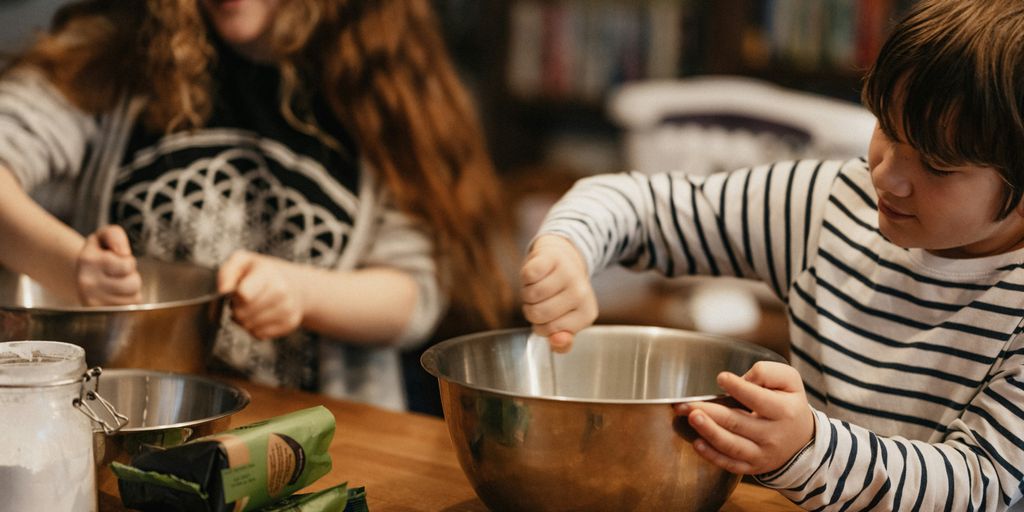
Cooking and baking can seem daunting for beginners, but with the right tips and techniques, anyone can become proficient in the kitchen. This article aims to provide essential advice on various cooking and baking methods, tools, and common pitfalls to help you start your culinary journey with confidence.
Key Takeaways
- Always preheat your oven to ensure even cooking and baking results.
- Use the right tools and equipment to make the cooking and baking process easier and more efficient.
- Avoid overcrowding the pan to ensure proper cooking and avoid steaming your food.
- Follow recipes closely, especially when you’re just starting out, to achieve the best results.
- Incorporate healthy alternatives like whole grains and reduced sugar to make your dishes healthier without sacrificing flavor.
Understanding Basic Cooking Techniques
Sautéing and Stir-Frying
Sautéing and stir-frying are quick cooking methods that use high heat and a small amount of oil. Mastering these techniques can help you create delicious meals in minutes. Remember to keep your ingredients moving in the pan to avoid burning.
Boiling and Simmering
Boiling and simmering are essential for cooking pasta, rice, and making soups. Boiling uses high heat, while simmering uses low heat to gently cook food. Understanding the difference between these two methods can improve your cooking results.
Roasting and Baking
Roasting and baking both use dry heat to cook food, but they are used for different types of dishes. Roasting is typically for meats and vegetables, while baking is for bread, cakes, and pastries. Preheating your oven is crucial for even cooking and achieving the best results.
Knowing these basic techniques is the foundation of becoming a confident cook. Practice makes perfect, so don’t be afraid to experiment in the kitchen!
Essential Baking Tools and Equipment
Every baker needs a set of essential baking supplies to get started. Here are some must-haves:
- KitchenAid stand mixer
- Hand mixer
- Pyrex liquid measuring cups
- OXO baking container set
- Measuring spoons
Selecting the right bakeware is crucial for achieving the best results. Opt for high-quality materials like aluminum or silicone. Ensure you have a variety of pans, including:
- Cake pans
- Muffin tins
- Baking sheets
- Loaf pans
Accurate measurement is key to successful baking. Use the right tools for the job:
- Dry measuring cups for flour and sugar
- Liquid measuring cups for water and milk
- Measuring spoons for small quantities of ingredients
Properly measuring your ingredients can make or break your recipe. Always level off dry ingredients and check liquid measurements at eye level.
Common Cooking Mistakes to Avoid
Overcrowding the Pan
Overcrowding the pan can lead to uneven cooking and steaming instead of searing. Give your ingredients space to cook properly. Use a larger pan or cook in batches to avoid this common mistake.
Not Preheating the Oven
Always preheat your oven to the required temperature before placing your dish inside. This ensures even cooking and the right texture. Skipping this step can result in undercooked or unevenly cooked food.
Ignoring Recipe Instructions
Follow the recipe instructions to the letter, especially when trying a new dish. This includes steps like preheating the oven, sifting flour, or chilling dough. Ignoring these can lead to disappointing results.
Set up ingredients before you start. Measure all ingredients properly by using the required instruments and have them laid down in front of you so you are not running berserk in the middle of your preparation.
Mastering Baking Fundamentals

Room temperature ingredients blend more easily, ensuring a smoother batter and better texture. Cold ingredients can cause your batter to curdle or not rise properly.
Accurate measurements are crucial in baking. Use a kitchen scale for precision. Measuring by volume can lead to inconsistencies.
- Spoon flour into your measuring cup, then level it off with a knife.
- For liquids, use a clear measuring cup and check at eye level.
Leavening agents like baking powder, baking soda, and yeast are essential for making your baked goods rise. Each agent works differently and must be used correctly.
Proper technique, plus math and science, are vital for success in baking.
In a course like the Fundamentals of Baking and Pastry, Escoffier baking students create various doughs, sauces, crusts, and custards and can practice their ability to recognize how precise measurement and temperature control are crucial to the success of a dish.
Tips for Perfect Cookies and Cakes
Achieving the Right Consistency
Consistency is key when it comes to baking perfect cookies and cakes. Ensure your butter and sugar are creamed until pale and fluffy. Avoid yellow and gritty mixtures.
Preventing Overmixing
Combine ingredients as gently as possible without overmixing. Overmixing can lead to tough and dense baked goods. Remember, less is more!
Testing for Doneness
Use a toothpick to test for doneness. Insert it into the center of your cake or cookie; if it comes out clean, your bake is done. For cookies, look for a golden-brown edge.
Keep your bakeware looking shiny and new by using silicone baking mats. This not only helps in even baking but also makes cleaning easier.
- Always sift dry ingredients like flour and cocoa powder to ensure a lighter texture.
- Wait for your cake to cool completely before frosting it to avoid a melty mess.
- A light coating of flour will stop fruit and chocolate chips from sinking to the bottom of cakes and loaves.
Healthy Cooking and Baking Alternatives
Substituting Ingredients
Experiment with ingredient swaps to make your recipes healthier. For example, use Greek yogurt instead of sour cream, or applesauce in place of oil. These small changes can make a big difference in your diet.
Reducing Sugar and Fat
Cutting down on sugar and fat doesn’t mean sacrificing flavor. Try using natural sweeteners like honey or maple syrup, and opt for healthy fats such as avocado or olive oil. These alternatives can help you maintain a balanced diet.
Incorporating Whole Grains
Whole grains are a great way to add fiber and nutrients to your meals. Substitute white flour with whole wheat flour or use quinoa instead of rice. These swaps can lead you on the trail to a healthier life.
Making small, consistent changes in your cooking and baking habits can lead to significant health benefits over time.
Cleaning and Maintaining Your Kitchen
Start with an empty sink and dishwasher. This makes it easier to clean as you go. Spray measuring cups or spoons with a bit of oil to keep sticky ingredients from sticking to them. Clean up a sticky mess by dusting a bit of flour on top and then scrape it up with a bench scraper.
Transform your home: innovative DIY projects for modern living. Embrace creativity with upcycled furniture and smart home upgrades for comfort and convenience. Designate a spot to place reusable measuring spoons and cups, utensils, and knives. Keep a notebook with you to jot down any ideas or recipes.
Regularly check and maintain your kitchen equipment to ensure longevity. Clean up a sticky mess by dusting a bit of flour on top and then scrape it up with a bench scraper. A standard ruler is a great substitute for a bench scraper or dough slicer. A wine bottle makes a fab rolling pin.
Start cooking with an empty dishwasher and a clean workspace. This will help you stay organized and efficient in the kitchen.
Conclusion
Embarking on your baking journey can be both exciting and a bit daunting, but with the right tips and tricks, you’ll find yourself becoming more confident and skilled in no time. Remember, baking is a science that requires precision, patience, and practice. Don’t be afraid to make mistakes; they are part of the learning process. Start with simple recipes like 3-Ingredient Peanut Butter Cookies or Brownie Cupcakes to build your confidence. As you become more comfortable, challenge yourself with more complex bakes. Keep experimenting, have fun, and most importantly, enjoy the delicious results of your hard work. Happy baking!
Frequently Asked Questions
What are some beginner-friendly baking recipes?
Some beginner-friendly baking recipes include 3-Ingredient Peanut Butter Cookies, Cocoa Cake, Italian Jam Crostata, Brown Sugar Shortbread, Almond Gâteau Breton, and Brownie Cupcakes.
Why is it important to preheat the oven before baking?
Preheating the oven is crucial because it ensures that your batters and doughs bake evenly. The rise, texture, and flavor of your bakes depend on a properly preheated oven.
Can I substitute ingredients in a baking recipe?
It’s best not to substitute ingredients on your first attempt at a recipe. Baking is a science, and changing ingredients can affect the final outcome.
How should I measure ingredients for baking?
It’s important to weigh your ingredients for accuracy. If you don’t have a scale, use proper measuring tools and techniques to ensure you get the correct amounts.
Why are room temperature ingredients important in baking?
Room temperature ingredients mix more evenly into batters and doughs, helping to create a uniform texture and proper rise in your baked goods.
What should I do if my recipe says to use room temperature ingredients but I forgot to take them out of the fridge?
You can bring ingredients to room temperature more quickly by placing them in a warm spot in your kitchen or using techniques like placing eggs in warm water for a few minutes.






